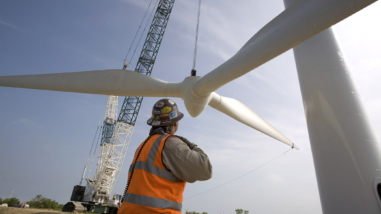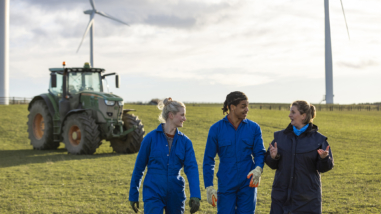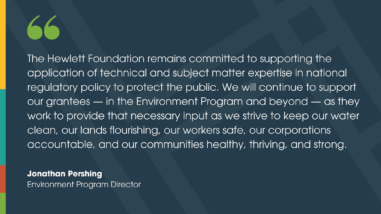The Nature Conservancy
For Support Of The Great Northern Checkerboards Project
-
Amount$500,000
-
Program
-
Date Awarded11/17/2014
-
Term12.0 Months
-
Type of SupportGeneral Support/Program
Strategies
Overview
The West is home to some of the nation’s most cherished lands. However, private owners hold a disproportionably high percentage of the most ecologically productive land. This grant to the Nature Conservancy will help protect 166,500 acres of privately held land in Montana and Washington, owned by the Plum Creek Timber Company. The lands to be acquired are habitat for gray wolves, wolverine, lynx, bull trout, and steelhead (all imperiled species), and offer significant recreational opportunities for local communities. The Conservancy would use the grant to pay for necessary appraisals, the preparation of legal documents, and other materials necessary to convey title to the land.
About the Grantee
Grantee Website
www.tnc.org
Address
4245 North Fairfax Drive, Suite 100, Arlington, VA, 22203-1637, United States
Grants to this Grantee
for the Building a Conservation Ethic in the West program
The Nature Conservancy works around the world to protect ecologically important lands and waters for nature and people. In the Western U.S., it collaborates with community partners to educate the public and policymakers about the need to enhance public funding for conservation of public lands and waters, and sustainable working lands. (Substrategy: Landscape-Scale Connectivity)
for the Building a Conservation Ethic in the West program
The Nature Conservancy works around the world to protect ecologically important lands and waters for nature and people. In the Western U.S., it collaborates with community partners to educate the public and policymakers about the need to enhance public funding for conservation of public lands and waters, and sustainable working lands. (Western Conservation Substrategy: Advance Conservation Protections)
for wildfire resilience in the West
The Nature Conservancy works around the world to protect ecologically important lands and waters for nature and people. In the Western U.S., it collaborates with community partners to educate the public and policymakers about the need to enhance public funding for wildfire resilience. (Substrategy: Wildfire)



